- Home
- Fay Weldon
Splitting Page 2
Splitting Read online
Page 2
“At least,” said Mrs. White, “you’re not on illegal drugs like all the rest or you’d be thinner. Or are you the kind who says alcohol is the worst substance of them all?”
“Am I undergoing some kind of character test?” asked Edwin. You could push him so far and no further.
“Yes,” Mrs. White said promptly. “If you mean to marry my daughter you’ll have to go through one or two.”
“I never said I was going to marry her,” he said, alarmed.
Angelica burst into tears and went and sat in her father’s study, where her mother had never gone. But now her mother followed her in. Everything at home had changed. Angelica’s tears grew noisier.
“Don’t embarrass me,” said Mrs. White.
“But you embarrassed me,” said Angelica, accustomed to having the moral upper hand in these family matters.
“And you’re supposed to be so tough,” said Mrs. White, looking her daughter up and down. Angelica was a rock-and-roll star. She wore boots up to her thighs and a fringed leather shirt down to her knees, and her hair was canary yellow. If she couldn’t look after herself by now it was time she did.
“No one’s said anything about marriage,” said Angelica. “We haven’t even been to bed together.”
“Then keep out of it,” said Mrs. White. “That way he’ll stay around.”
Mrs. White had been to bed with Gerald Hatherley, and his wife was now divorcing him. That was different: they were grown-up people. These two were children: Angelica was having a difficult adolescence; an archetypal Billy Bunter, the fat schoolboy, still looked out of Sir Edwin’s eyes. And Alice in Wonderland could still be seen in Angelica’s, for all she’d earned two-thirds of a million pounds from a single entitled “Kinky Virgin”: a sum sensibly put away in a Savings and Loan.
“You don’t think I’m some sort of pervert?” asked Angelica. “I just don’t like the thought of actual sex. It seems rather disgusting to me. I’d much rather just sing about it.”
“I’m sure it’s not my fault,” said Mrs. White. “Sex disgusting? I never put that idea into your head. I can’t have.”
Angelica stayed out of Edwin’s bed, and soon he asked her to marry him, on the old fashioned premise that that was the only way he’d get her into it. That was sixteen years ago, when marriage was still quite popular, and hit singles happened and made millions for innocents.
And that was when Angelica was still one person or at any rate, if you’d asked her, would have said she was. If you have a name like Angelica, it’s asking for trouble. For one thing you have the kind of parents who give you such a name, and for another it’s all too easy to split. Angel, Geli (or Jelly), Angela: she got called them all. Worse, if you know about A, J and A, and add an X for an unknown extra, you end up with Ajax. The strong, stubborn, stupid Hero of Ancient Greece, Ulysses’ friend. All women have a male within their female, a yang within the yin, but seem nervous of encouraging it. Though men seem happy enough searching their psyches for the hidden female part of themselves—no shame for the yin to contain the yang—what woman wants to inspect themselves and discover Ajax? Naturally Angelica eschewed too much introspection. She skated along on the surface of things, as long as she possibly could.
But that comes after. This is now.
(2)
How They Told Edwin’s Father
“WE’RE GOING TO GET married,” said Edwin to Lord Cowarth, his father. His mother had drunk herself to death long ago. Edwin was the youngest son so no-one took much notice of him. He was allowed to live in Rice Court, the crumbling Elizabethan mansion, if only to keep the damp and moth away.
Lord Cowarth looked Angelica up and down. They were in Cowarth Castle, in the Great Library, where a Caxton Bible was kept beneath glass. At Edwin’s request, Angelica was wearing a white sweater and a black wool skirt. Her hair was dyed brown, and she had removed the rings from her nose. The scars were healing, the holes filling in. She looked conventional enough and easily shocked and she spoke with the slapdash incoherence of her generation. Lord Cowarth wore a dressing gown thin with age which fell apart to show skinny shanks and a tiny member.
“Has she got any money?” the father asked. He carried a cleaver wherever he went. He was short, rubicund and savage; thin in parts, fat in others.
“A few hundred thousand,” said Edwin proudly. Lord Cowarth grunted.
“I always thought you had your eye on that bint Anthea,” he said. “Plain as a pikestaff but just right for you, the fat boy of the form. Can’t abide a fat child,” he said, and Angelica thought she saw Edwin wince. Mostly Edwin kept his face friendly and still, accustomed as he was to paternal rebuffs and insults. “Most of my children were thin. Perhaps you’re not my child at all. When I think of that tart of a woman I married”—Lord Cowarth’s eyes narrowed—“it wouldn’t surprise me.” He spun Angelica round with fingers that clawed into her neck.
“What’s your game?” he asked. “What are you after? A title, a house, or an education for your children?”
Angelica took hold of Edwin’s hand, but her fiancé seemed incapable of helping her get free. All the strength had drained from him. So much old stags can always do to such progeny as rashly stay around.
Lord Cowarth balanced the cleaver in his hand, letting go of Angelica the better to do so. The cleaver was made of rusty old iron, solid old wood.
“I think he likes you,” said Edwin softly.
“What are you whispering about? What are you plotting?” The old man had a front tooth missing. He struck the blunt back of the hilt against his lips. Soon another tooth would go. One way or another there would be blood in his mouth next time he opened it. A useful trick. When Lord Cowarth went to the House of Lords, for a Coronation or the investment of a relative, he would dress in finery: otherwise he kept to his dressing gown, and liked to have a bloody mouth. He seldom left his apartments: he could run the Rice Estate well enough from the Castle.
“I love your son,” said Angelica. “That’s what I was whispering. Sweet nothings, you know?” That silenced him.
At least the old man did not forbid the wedding. Edwin could not have stood out against his father, and Angelica would not have expected him to. But now she had a chance to save him, build up his self-confidence, help him recognize and accept himself. She was brimming with good intentions.
“Will your brothers come to the wedding?” asked Angelica.
“Doubt it,” said Edwin, stoically. He and she would marry quietly. She wanted to make him happy. She had not understood how anxious family life could make a man, riddling him with the expectation of rejection, of failure. His elder brothers, twins, twenty years older than he, now lived in warmer climes, in the Southern Seas; they had beautiful brown wives. One twin kept a restaurant; the other a marina. The Rice Estate kept both businesses in efficient managers: fish swam up, the yachts slid in; money flowed, titles entranced everyone. The languid tones of the English upper class travel well, though these days they grate upon the domestic ear.
The Kinky Virgin band would, of course, have none of Edwin: of his tweed jacket and knotted scarf, so Angelica would now have none of them. “I’m giving music up,” she said. “All that was only a flash in the pan. I haven’t any real talent.”
Now she’d seen her mother in a mini skirt, she’d lost her appetite for excess. Now she’d perceived the depths of Edwin’s woes, the exhilarations of the rock stadium seemed distasteful. Besides, her father had died and who was there left to shock? Her mother had become unshockable; family friends had come to appreciate her, inasmuch as she put their own young into a better light. It was time to give up and grow up.
Angelica’s arms’ were so skinny Edwin could close his hand right round where her biceps would be, were she to body-build. He liked that. Who these days could win a virgin bride? He felt marrying such a one would make the crops’ grow, and the dry rot recede: his breaking of the hymen, his staining of the marriage sheets, would bring good fortune and sanity to a l
and ruled by that mad old man, his father.
Someone had to be responsible: his twin brothers had left him behind to be just that; had run out on him. He had seen his life as a sacrifice: terrible girls had wooed him in spite of his looks, in spite of the veil of fat which protected him in his early years, making his penis seem tiny, his sufferings absurd; they had wooed him and bedded him for the sake of his title, his landed state, his patrician accents, never mind he would never properly inherit wealth, only a fearful responsibility and inevitable rejection: would, like as not, inherit madness from his father, but never have his father’s power. Little by little Lord Cowarth had devolved that power to Robert Jellico, his Land Agent, and Robert Jellico, as well as being unerringly competent, was a powerful, sensible man, not given to evident emotion or the recognition of the financial duty that kinship imposes. Edwin complained that Robert Jellico looked at him strangely.
“He’s gay,” said Angelica simply. “That’s all. That’s why he looks at you the way he does. He’s going to hate me. He’s a man who rises at seven and doesn’t understand the way you stay in bed till noon.”
Edwin loved Angelica because she reduced terrible and complex things to such simple and graceful components, and seemed threatened by no one, except her mother, the only one who could make her cry. But those tears were the tears of the child, confident of love and the eventual pleasures of reconciliation and consolation.
She had not yet split.
(3)
The Wedding
EVERYONE CAME TO THE WEDDING, including the ghost of Edwin’s mother. She was seen at the top of the narrow, ugly Jacobean stairs in a white dress, angrily waving a bottle, with a kind of miasmic mist floating from her: it left a damp coating on the bannisters which Mrs. MacArthur, the housekeeper, pretended was mould. Staff scrubbed and rubbed away at it but it kept returning; you couldn’t get a shine on the wood, no matter what.
“Your mother’s not angry with you,” said Angelica to Edwin, “but I expect she’s angry with your father. I’m sure she loved you very much.”
“Why?” he asked, gloomily.
“Because you’re loveable,” she replied, and he looked at her in gratified astonishment, and kissed her chastely. Edwin had got accustomed to doing that. He didn’t quite see how on a marriage night the habit of chastity was meant to change to the habit of uxorious sexuality, but if it had for his forefathers (as Angelica had assured him was the case—they had to marry virgins so as to keep the line of inheritance clear) no doubt it would for him.
“Why should my mother be angry with my father?” he asked. He took his father’s behavior for granted, as sons will; as the father sees the world to be, so it is: daughters are often more critical.
“Your father is a monster,” Angelica explained to Edwin and Edwin seemed quite surprised.
“That’s just how he is,” said Edwin, and only reluctantly conceded what his mother had come to know so clearly: that his father was unpleasant beyond normality, even for the upper classes.
Pippi and Harry, Kinky Virgin’s violinist and drummer, had seen the apparition. “A cloud of fucking sperm,” Pippi complained, “floating down the stairs. This old lady, following behind, waving a bottle. Was that your mother-in-law?”
“I hadn’t even had a smoke,” said Harry, “nor a sniff, nor a jab, and still I saw it. Unfair!”
None of Angelica’s friends wanted her to marry Edwin: snobby twerp, nerd, cunt: from the posh end of yuppiedom, who’d given the band, with its foul-mouthed, intelligent cacophony, a passing popularity and been the more resented for it. And rightly, Sloaning and boning its drugs; drawling through the early hours, slamming car doors in the dawn to wake up the babies of the boring, toiling classes, the drears who worried about mortgages and children who failed exams and how to crawl out of the pit of necessity, the miasma of need, which shortened lives and narrowed hope; the steady, frightened classes who included Kinky Virgin in the things most wrong with the world today. Thus the careless and the crude, the wealthy and the wilfully distressed, joined forces in the clubs, each despising the other, but despising the rest more.
Edwin and Angelica declared their engagement, joined hands across a chasm of custom and class, and nasty phantoms leapt up out of the depths to snap and snarl and make them break apart if they could; but at the time the lovers, or lovers-in-waiting, scarcely noticed their enemies; just felt surprised their match was so unpopular. All the world, which was meant to love a lover, plainly didn’t.
“Is it wise to marry for money, darling?” enquired Boffy Dee of Edwin at the wedding. Boffy Dee had bedded Edwin once or twice, he later found for a dare; she’d reported back to his circle, for reasons best known to herself, that his member was minuscule. He had found himself hurt and humiliated by this: he’d had much comfort from Boffy Dee, in a warmly dark and confident way; he’d believed in her affection, trusted her pleasure and his own. Boffy Dee was wearing a tight orange dress and a cartwheel hat, which made her ugly: he hated her.
“I’m marrying Angelica because I love her,” said Edwin, with a simplicity which opened the way for yet more scorn. He thought it was his bulk which made them all believe he was slow-witted and gave him his reputation for clumsiness.
Rice Court was a mass of small, dark rooms and twisted staircases, which would open out into large, panelled, cold, unliveable-in halls, a few open to the public and therefore not home; everything crumbled and rotted. If you were a large person and moved quickly or impulsively you’d put your foot through the floor or break off some piece of wooden carving which turned out to be historic and valuable, and cause hysterics. The Elizabethan and Jacobean builders of Rice Court had been absurdly fine-boned and small-footed. Edwin had got quite accustomed to moving around with caution, but tales of his clumsiness still got round. Fortunately Angelica had known him only in his later days: she found him graceful enough.
Anthea Box, Edwin’s cousin, was wearing Laura Ashley sprigs which did nothing for her horsy looks, but made him feel affectionate towards her. She was the only one who seemed to have a good word to say for Angelica.
“I expect the holes in her nose will heal up with time,” said Anthea, “now the rings are out.”
Angelica settled down into being one person, un-split. Love is a great sealer-over of seams.
(4)
Lady Rice, One Year into Her Marriage
“I’M NOT INTERESTED IN money,” said Lady Rice. “I’m not one bit materialistic.” Which was just as well because within weeks of the wedding Robert Jellico suggested she use her funds to buy into the Rice Estate: with the money so released Rice Court could be refurbished.
Lady Angelica Rice gained the title on marriage. She and Edwin lived quietly in Rice Court; they spent a great deal of time entwined in bed; not with great passion, but with considerable affection, secure in each other’s loving commitment. Angelica didn’t see her friends: Edwin didn’t see his. They smoked a great deal of dope. They went into the town for a late lunch, or dinner, often to McDonald’s. Both relived, and recovered from, their childhoods.
They were not disturbed. Rice Court had been closed to the public of late; an ornate plaster ceiling had fallen and injured a visitor. Insurance had paid but everyone had had a nasty shock. Robert Jellico’s perfect shirt had been seen awry and his smooth skin had sweated slightly. Now he worried that money was being lost while the young couple idled and slept.
The only disrupting energy was Mrs. MacArthur, who complained she had to act as nanny. To Edwin and Angelica she seemed merely vengeful, changing the sheets on the fourposter bed once a day, practically shaking them out of it; rattling empty coke tins into black plastic sacks, hoovering up roaches and snipped bits of this and that, broken matches and Rizla papers, throwing out baked beans on plates cracked because Edwin or Angelica had stepped on them by mistake.
“She gets paid, doesn’t she?” said Edwin. “Why does she get in such a state?”
Lady Rice wrote Robert Jellico a check f
or the amount the cash machine said she had in her current account, minus one thousand pounds: £832,000.
“All that money in your current account!” said Robert Jellico, dazedly. “Not a high interest account, not even a building society? What was your mother thinking about?”
Mrs. White was busy thinking about Gerald Hatherley mostly, and wondering why his wife Audrey was being so difficult, and why Gerald’s daughter Mary, who once was such a good friend of Angelica’s, cut her dead on the street. It seemed strange to Mrs. White, as it did to her daughter, that the world was so full of people who simply didn’t want you to be happy.
“Take the money,” said Angelica grandly to everyone. “Money is of no importance. Invest it in Rice Court, if that’s what you want. The Rice family is my family now, and that includes you, Robert.” And indeed Robert Jellico, with his flat face, his overhanging eyelids, his Cardinal’s mien, his grey eminence, seemed the old-worldly yet contemporary expression of the determined Rice soul. He it was who kept the balls of the whole business juggling in the air. For all his complicated love for Edwin, his evident disparagement of Angelica, they knew Robert Jellico was trustworthy enough. Robert knew money and property must be looked after. If Angelica’s money went into the tenderest, most vulnerable, most simply sacrificed, last-in-first-out enterprises of the Rice Estate, the crumple zone of the commercial juggernaut, then that was the tax Angelica had to pay because she had no presentable family, and no social status; only money and a recent marriage. Robert Jellico made sure Angelica’s money did not go directly towards the rebuilding of Rice Court, in case of future litigation, and any claim that might be made alleging the place to be the matrimonial home. He was not so stupid and she did not notice. Who, lately married, ever anticipates divorce?

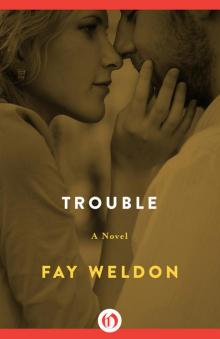 Trouble
Trouble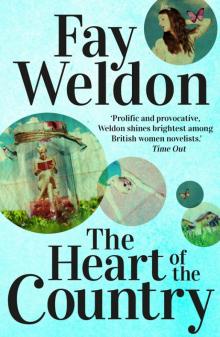 The Heart of the Country
The Heart of the Country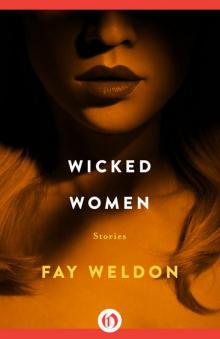 Wicked Women
Wicked Women Mischief
Mischief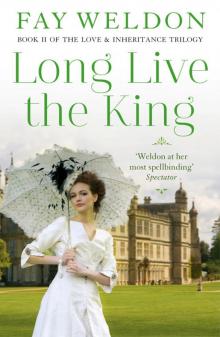 Long Live the King
Long Live the King Remember Me
Remember Me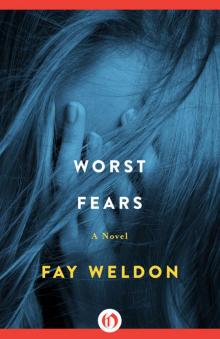 Worst Fears
Worst Fears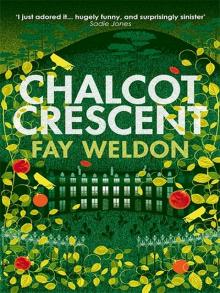 Chalcot Crescent
Chalcot Crescent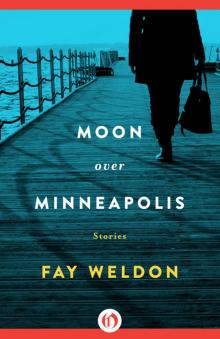 Moon Over Minneapolis
Moon Over Minneapolis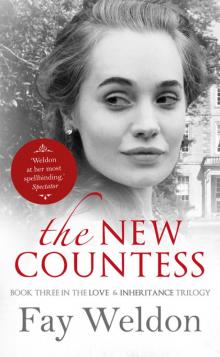 The New Countess
The New Countess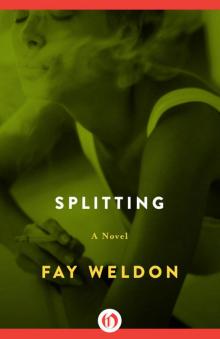 Splitting
Splitting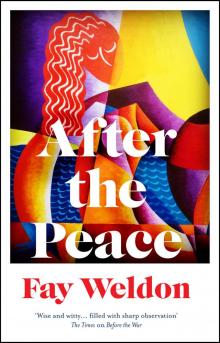 After the Peace
After the Peace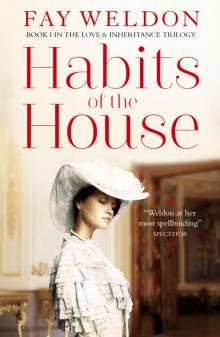 Habits of the House
Habits of the House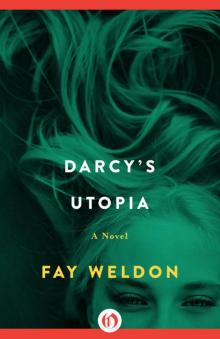 Darcy's Utopia
Darcy's Utopia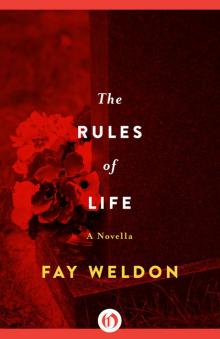 The Rules of Life
The Rules of Life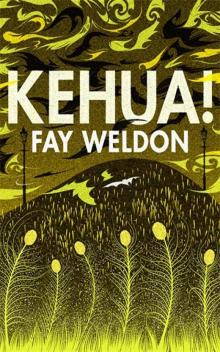 Kehua!
Kehua!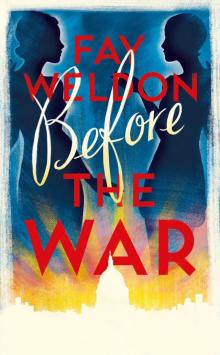 Before the War
Before the War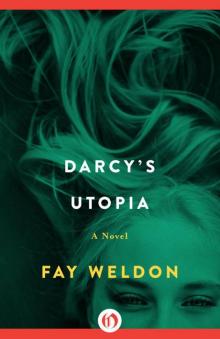 Darcy's Utopia: A Novel
Darcy's Utopia: A Novel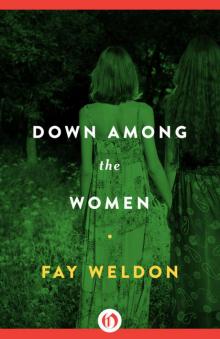 Down Among the Women
Down Among the Women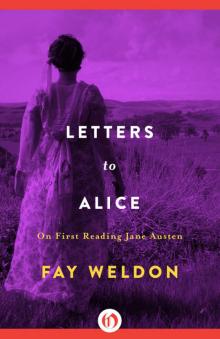 Letters to Alice
Letters to Alice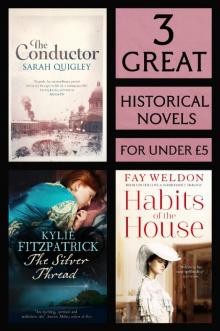 3 Great Historical Novels
3 Great Historical Novels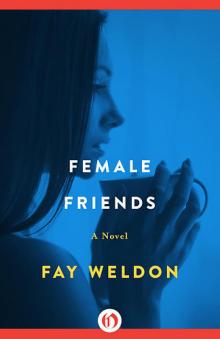 Female Friends
Female Friends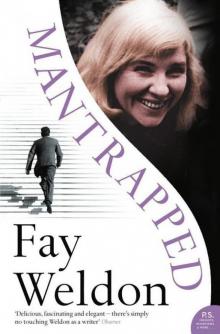 Mantrapped
Mantrapped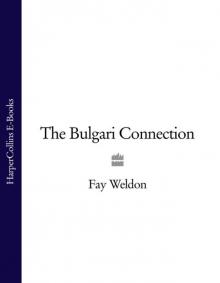 The Bulgari Connection
The Bulgari Connection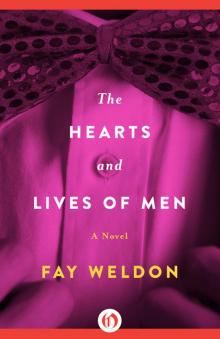 The Hearts and Lives of Men
The Hearts and Lives of Men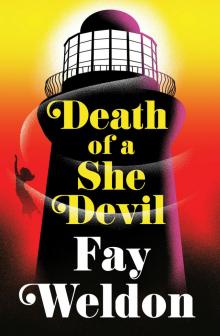 Death of a She Devil
Death of a She Devil